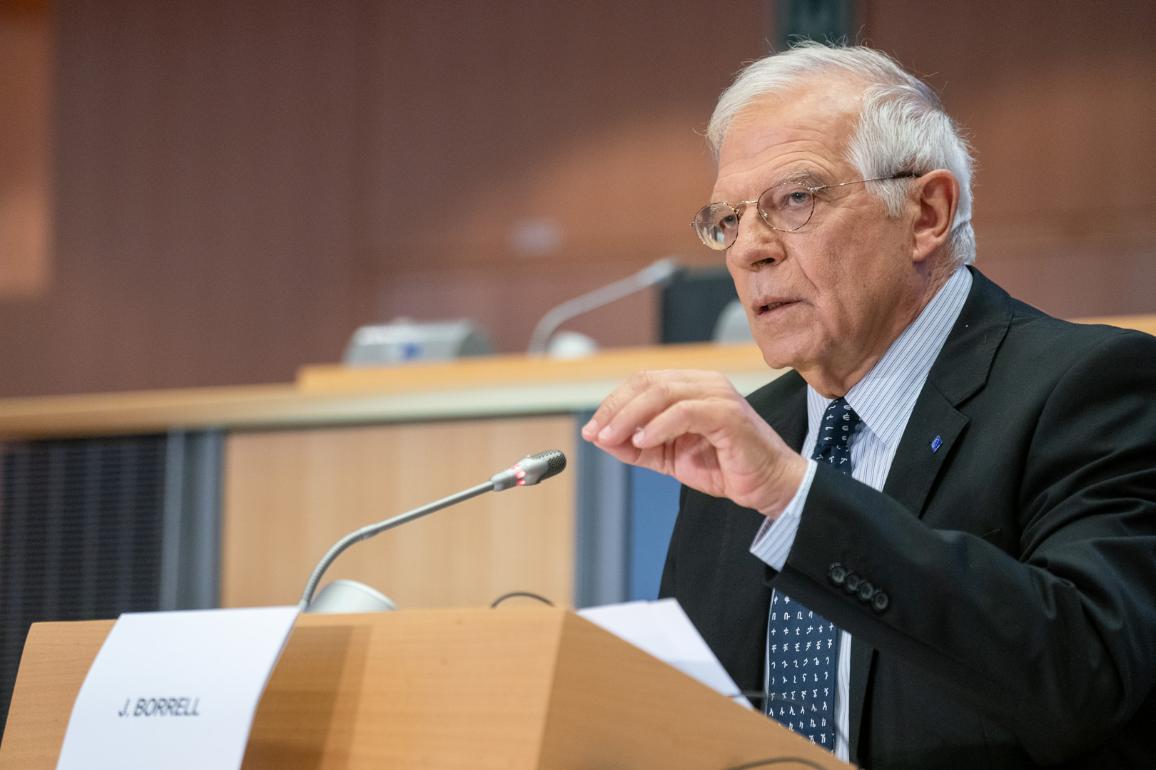What will Europe do in Libya?

The article by Tino Oldani for Italy Today
Josep Borrell, 74, a Spanish socialist, is the EU High Representative for foreign affairs and security policy. Interviewed by Federico Fubini for Corriere della Sera on the US retreat from Kabul, he discovered that, now, Europe will have to think about security with its own forces. For this reason, he proposed to establish "a first intervention force of the EU states, with a strength of 5 thousand soldiers, to protect our interests".
It is not clear whether Borrell has already discussed it with the leaders of the EU states and with the heads of the EU Commission, or if it is just his personal idea, destined to remain so. After all, despite the high-sounding name of the post, the High Representatives have never decided on the EU's foreign and security policy, given that each Member State continues to manage it on its own.
In the same full-page interview, speaking of security, Borrell touches on numerous other topical issues, especially in the field of migrants and refugees, and – hear, hear – he goes so far as to justify the walls erected by Greece and Lithuania against illegal immigrants, barriers that " they do not go against European law ", because" we are talking about the external border of the Union "and" the barriers are there to protect against violations of the territorial limits of a country ". An original distinction, never heard before, which seems to justify, without saying it openly, also the wall erected by Spain on the border with Morocco. Not a word, however, about Libya, as if this North African country, with its political instability and the incessant stream of illegal immigrants to Italy, has not been a serious problem for the security of Europe for at least ten years.
On closer inspection, for High Commissioner Borrell, there was a good reason not to forget Libya, and how if there was. It is enough to re-read the final communiqué of the European Council of Heads of State and Government of 25 June, in which the EU reaffirmed its commitment to the political stabilization of Libya under the auspices of the United Nations, including political elections, to be held on 24 December next. A commitment that, just two months later, seems completely forgotten in Brussels, so much so that the elections of 24 December, announced as a fundamental step in the process of securing Libya, are so far on the high seas that no one is able to predict how long they will be postponed.
In this regard, the InsideOver site, for the pen of Alessandro Scipione, with an accurate survey on the field, lists the reasons for the almost certain electoral postponement. Currently, in Libya there is a provisional government, led by Adulami Daibaba, an entrepreneur from Misrata, "accused of having arrived in the control room buying votes and giving favors, accusations always rejected by the person concerned". According to the rules established by the Political Dialogue Forum (composed of 74 members), which set the date of the elections and appointed the interim authorities, Prime Minister Daibaba could not stand as a candidate for the vote on December 24th. Which is enough to explain why Daibaba is not moving a finger to organize elections after which he should leave the government, remaining also excluded from the future Libyan parliament.
The same rule, to say the least bizarre, applies to other leading politicians, all firmly committed to boycotting elections in which they could not stand. Like Aguila Saleh, president of the Tobruk House of Representatives, elected in 2014 with a turnout of just 18%. The same goes for Khaled al-Mishri, president of the High Council of Tripoli, an advisory body established in 2015, which brought together the members of the National General Congress. As for General Khalifa Haftar, despite being defeated on the ground by Recep Tayyp Erdogan's Turkish soldiers, he would now like to throw himself into politics and run for president, but it is not clear whether he can do so, given the numerous bans in the electoral rules. The same goes for his rival, Fathi Bashaga, former Minister of the Interior in Tripoli, who emerged victorious from the war with Haftar, thanks to Turkish help.
On 25 August, the Nova Agency reported that the UN special envoy for Libya, Jan Kubis, a Slovak diplomat, tried to take stock of the electoral road map, meeting the main Libyan political parties. Result: he had to acknowledge that the rebound of accusations among the most prominent figures has so far prevented the House of Representatives (the new parliament based in Tobruk) from enacting the new electoral law.
Consequently, some key points of the upcoming elections remain to be clarified: will we vote only for the parliament, or also for the president? With what eligibility criteria? Green light for the military too? Proportional, majority, or mixed vote? Nobody believes that similar issues can be resolved in time to hold elections on December 24, the 70th anniversary of national independence. As a result, Prime Minister Daibaba and the other leaders who already hold high institutional positions would all remain in their posts, for an interim whose duration remains difficult to calculate.
Not only that: by burying the road map indicated by the UN and supported by the European Council in June, the division of Libya between the countries that intervened militarily in the war between former premier Fayez al Serraj and Haftar, countries that already exercise today, would be strengthened. the greatest influence in western Libya (Turkey) and eastern Libya (Russia and the United Arab Emirates). All to the detriment of Italy above all, with many greetings to the EU High Commissioner, Borrell, who was unable to say a single word on security and Libya.
This is a machine translation from Italian language of a post published on Start Magazine at the URL https://www.startmag.it/mondo/perche-alto-commissario-ue-per-la-politica-estera-borrell-dimentica-apposta-le-elezioni-in-libia/ on Sun, 05 Sep 2021 05:02:13 +0000.
